Well-Child Visits and Screenings: Earlier Is Better
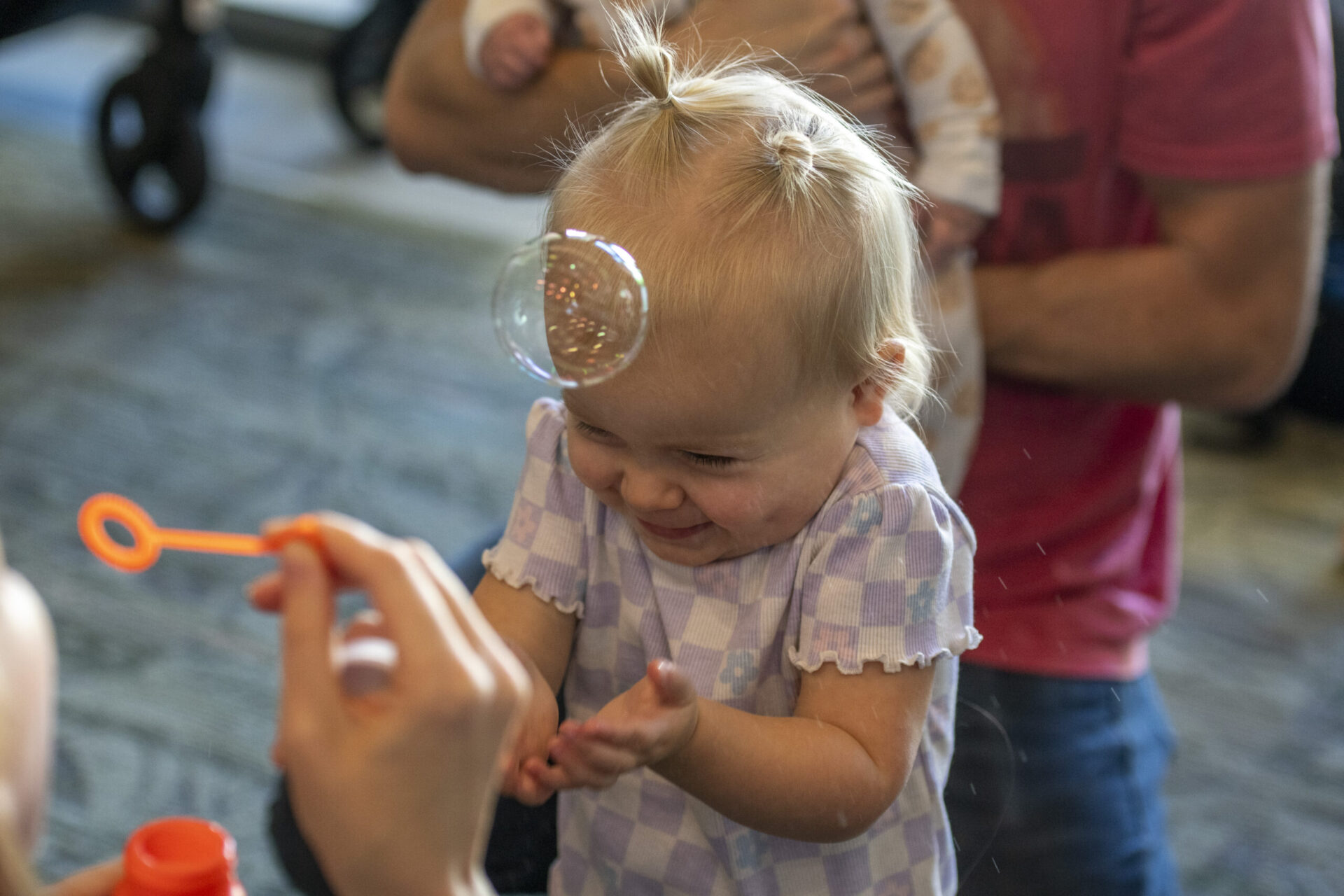
neural connections are formed in a child’s brain every second
One million. That’s the staggering number of neural connections that are formed per second in a child’s brain during his or her first few years.
The development of a child’s brain – and his or her accompanying developmental milestones – is a remarkable and profoundly significant process. Increasingly, research is shedding an ever-brighter light on the importance of both developmental surveillance and screening in children from birth to 5 years old. That’s why one of our primary areas of focus is ensuring that families are connected to routine well child visits to support each child’s health and development.
That’s why one of our primary areas of focus is early identification and intervention through developmental and behavioral screening, support, and treatment for our youngest children.
Developmental delays impact one in every six very young children
children under the age of 3 have a developmental delay
Well-child visits provide an opportunity to track growth and development (e.g., developmental screenings to gauge milestones, social behaviors, and learning); discuss concerns about a child’s health; and receive screenings and scheduled vaccinations to prevent illnesses.
Ensuring that children complete their well-child visits is crucial to supporting children on the path to good health and setting them up to be successful in life.
There is still much work to be done to improve system coordination and make sure every child gets critical linkages to services. Additional work can be done to better share results and data within and across systems such as healthcare and education. By sharing important information across systems, a child’s full range of needs can be better and more seamlessly addressed.

Well-Child Visits & Developmental Screenings
Children’s outcomes are improved and the costs are lower for the system of care when developmental delays are identified early and families receive help.
Often when people think of well-child visits they think of shots, and while immunizations are an important part of preventative care, developmental screenings are also a critical part of certain well visits.
All children develop and grow differently, but there are certain milestones that help families know whether their child is on track or if they need some early intervention and supports to help with their development. When children get their well visits, they do better.
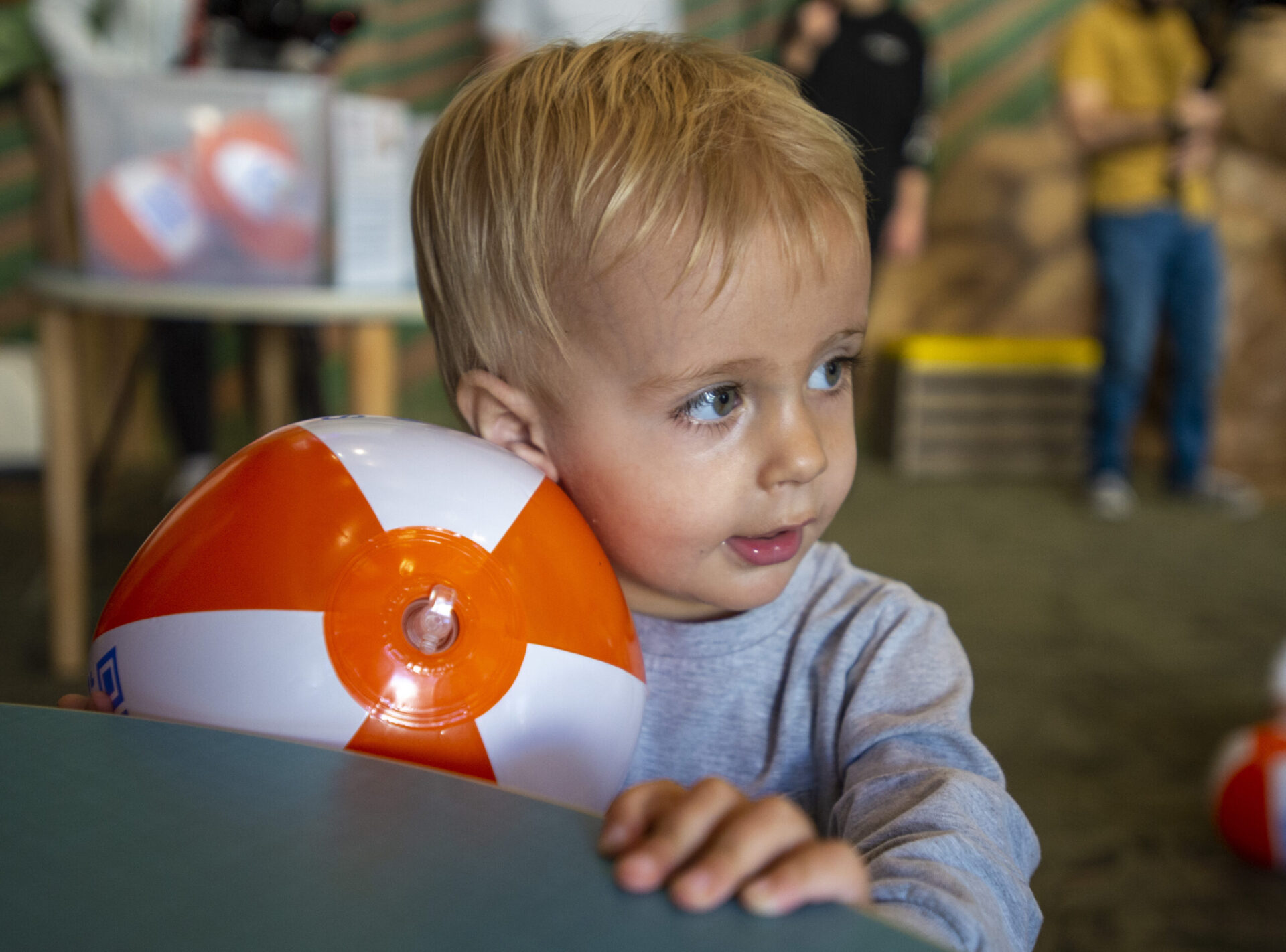
The Facts
An estimated
1 in 6
children in the US have a developmental disability. Yet, in California,
Only 3%
of infants and toddlers receive early interventional services.
%
Less than Half
of children in Orange County with Medi-Cal insurance received the recommended
6 or more well visits in the first 15 months of their life.
%
1 in 4
children in Orange County with Medi-Cal insurance received a developmental screening in the first 3 years of life (25%).
1.Benjamin Zablotsky et al., “Prevalence and Trends of Developmental Disabilities Among Children in the United States: 2009–2017,” Pediatrics 144, no. 4 (October 2019): https://doi.org/10.1542/peds.2019-0811.
2.“IDEA Section 618 Data Products: Static Tables,” US Department of Education (webpage), accessed September 19, 2022, https://data.ed.gov/dataset/idea-section-618-data-products-static-tables-part-c-child-count-and-settings-table-1/resources.
Well-Child Visits & Developmental Screenings in the First 30 Months:
The American Academy of Pediatrics recommends parents/caregivers bring their children in for 11 well visits between birth and 2 1⁄2 years old. As part of those
well visits, children should receive three developmental screenings at 9, 18 and 30 months. The use of a validated developmental screening tool is a great way for the parent/caregiver and healthcare provider to partner and monitor the child’s development, and to identify any areas of concern so they can be connected with needed resources as early as possible.
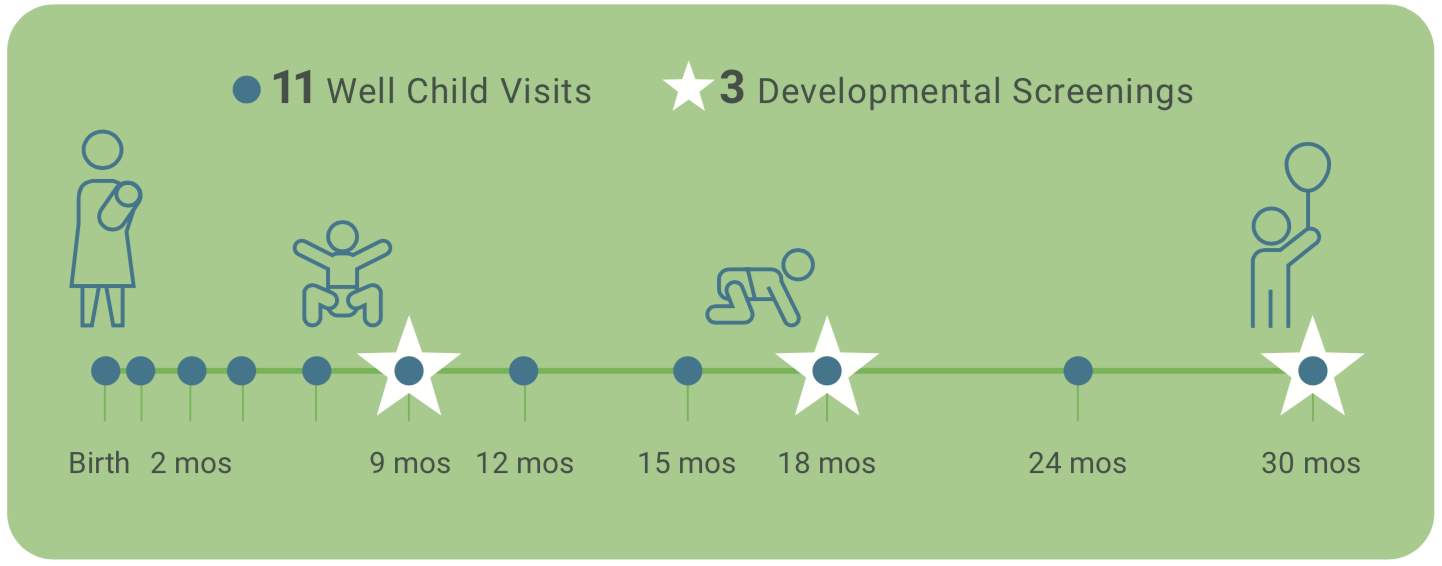
California’s Investment in Developmental Screening
In the past, providers were not financially incentivized for conducting screenings even though they were required by Medi-Cal as part of well visits. Beginning in 2020, Proposition 56 enabled providers to receive supplemental incentive payments for developmental screenings using a standardized tool. Consequently, we saw significant improvement in the percentage of children receiving developmental screenings in Orange County. Funding for developmental screening incentive payments has since been moved to the state General Fund.
“As a primary care pediatrician, I consider early childhood developmental screening to be one of the most important aspects of routine well child visits. By identifying children who are at risk, we can connect them to services at a young age and allow them to grow to their full potential.”
Reshmi Basu, MD, FAAP President, AAP-OC Chapter.
The Need
Developmental or behavioral challenges, including speech delays, vision or hearing impairment, learning disabilities, and autism, are often not identified until children are already in school. This means several important years have passed without early intervention, resources, or family support.
System challenges impact families and healthcare providers in a number of ways. To increase the number of children that receive well-child visits, developmental screenings, and early intervention, families and providers need the following:
“One thing that would really help would be to allocate enough time with parents in well visits, especially when children are younger.”
OC Parent
Families Need:
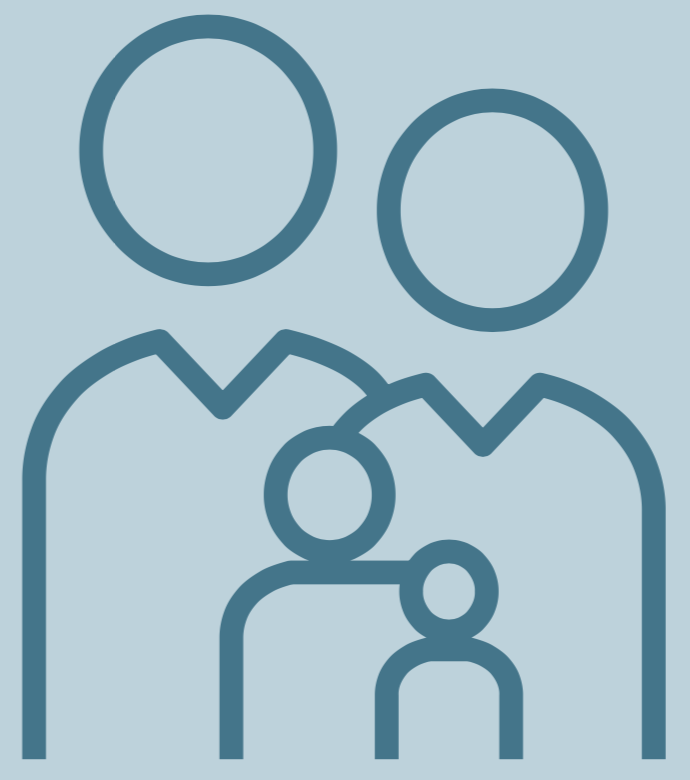
Solutions that make it easier to get well visits (e.g., office hours expansion).
Culturally competent healthcare providers.
Awareness that developmental screenings are part of the services they should receive in well visits.
Help with navigation and connection to services and resources tailored to their needs and insurance.
Greater availability of services without long waitlists.
Healthcare Providers Need:
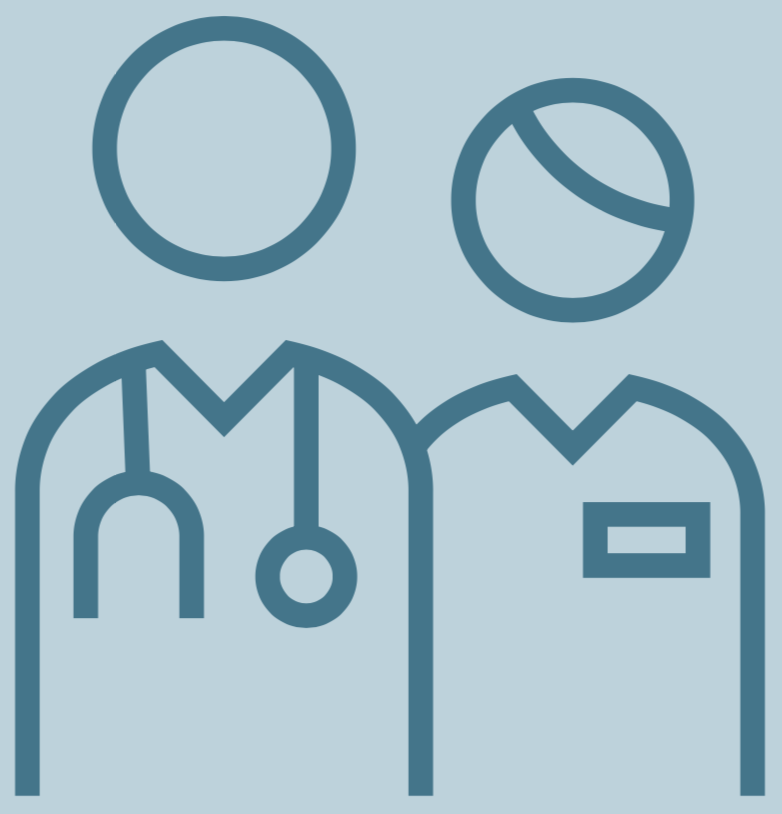
Continued financial incentive to make it feasible for them to conduct developmental screenings as part of well visits.
Training on developmental screenings with a validated tool.
Places to refer children who they find have developmental delays.
Confirmation/validation that the resources they refer families to was successful.
“Scheduling well visits has been a challenge. Our provider works for a big practice and there is a critical window for making appointments – it has to be at just the right time a few weeks in advance but not too far in advance or they can’t schedule. If you wait too long to call, you end up getting the appointment late.
And on top of that the times are difficult with work.”
OC Parent
“When my oldest was three I was really concerned because he still wasn’t talking and we never got help until he got to school. In school they gave him a test and he got an IEP and now has been in speech for three years and is doing better.”
OC Parent
Strategies and Solutions

First 5 Orange County is working with partners to:
Shared developmental screening goals for Orange County as well as timely data to help us know if we are making progress.
A well-coordinated system of care with adequate capacity for services and supports that families need.
System improvements that address what we hear families and providers need.
A shared messaging platform so that families and providers hear consistent messages about well visits and developmental screening.

First 5 Orange County supports the following:
Adequate financial compensation to providers for all elements of a well visit.
Continued expectations and incentives for Medi-Cal managed care plans to support well-child visits and developmental screenings.
Advocacy to ensure managed care plans place a priority on prevention and intervention for young children.
Investment in evidenced-based models that improve families’ engagement in well-child visits (e.g. HealthySteps, DULCE).
Ensure continuous Medi-Cal benefits for children ages 0 to 5.
Detect & Connect OC
First 5 Orange County is a founding member of Detect & Connect OC, which is a collaboration of organizations working on the critical issues of increasing well-child visits, early identification of developmental delays, and intervention.
Our vision is to ensure all children in Orange County receive timely, recommended developmental screenings in accordance with national, evidence-based guidelines, and are connected to resources and interventions as early as possible.
Foundational Principals
Detect & Connect OC has five foundational principles:
Focus on a Targeted Population to Start
Engage Physicians Early
Provide Adequate Training, Technical Assistance, Quality Assurance and Quality Improvement for Providers
Simplify Inter-Agency Coordination
Identify and Coordinate Systems-Level Champions
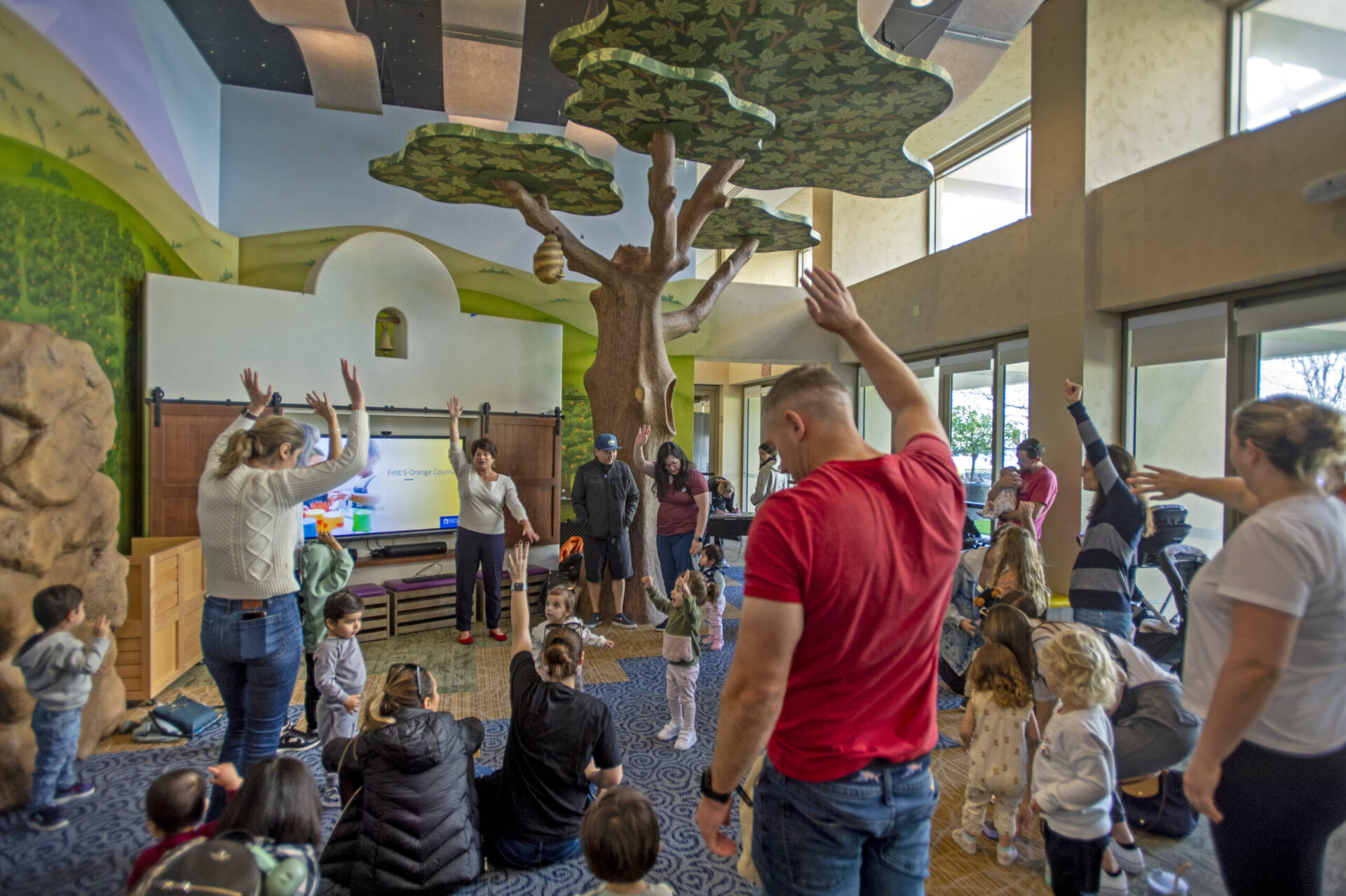
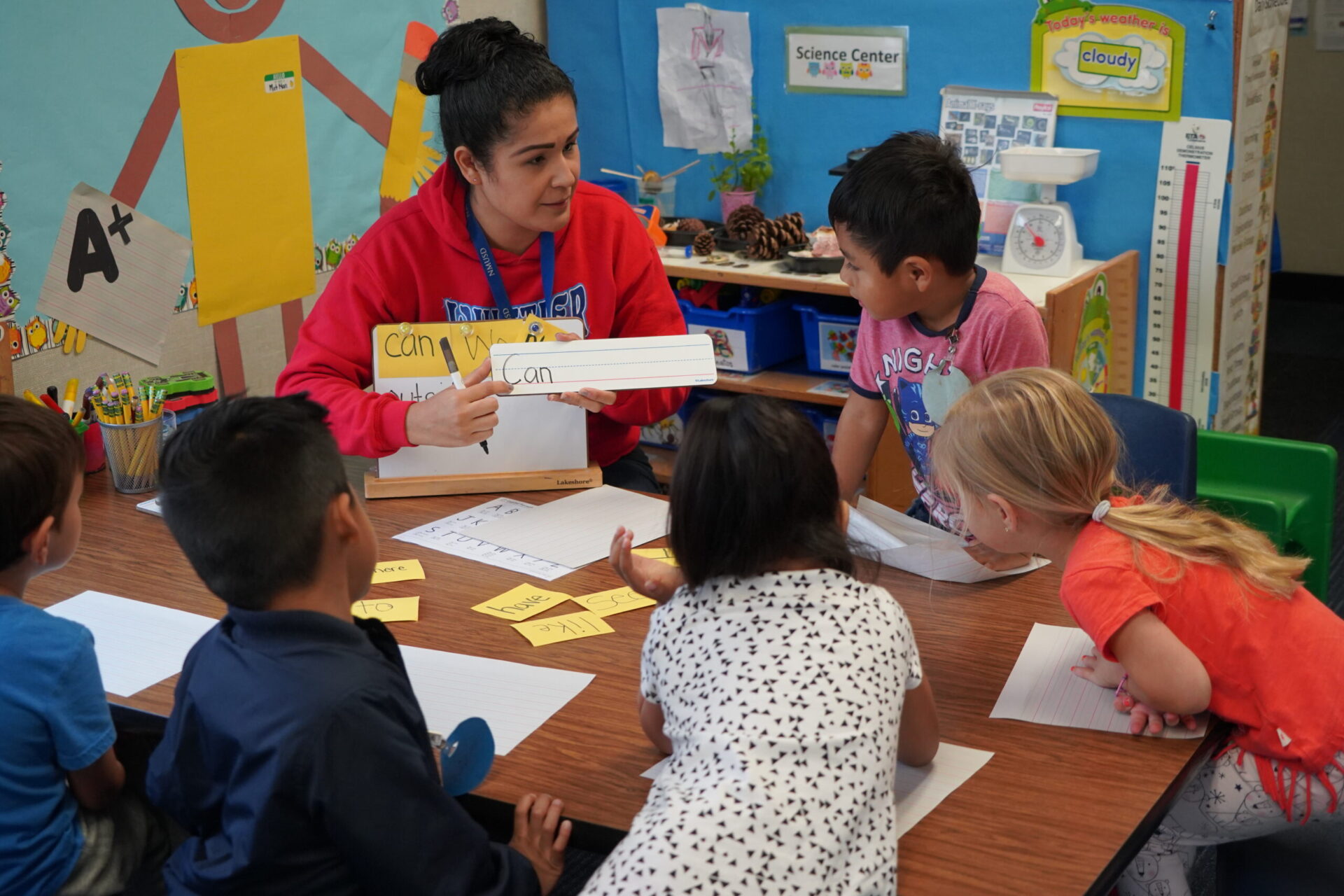
Agencies Involved
- American Academy of Pediatrics – Orange County Chapter
- Anaheim Elementary School District
- CalOptima
- CHOC Children’s
- Child Guidance Center
- Comfort Connection, Regional Center of Orange County
- Early Childhood OC
- First 5 Orange County
- Help Me Grow Orange County
- Orange County Department of Education
- Orange County Health Care Agency
- Orange County Social Services Administration
- Pretend City
- Santa Ana Unified School District
- State Council on Developmental Disabilities, Orange County Office
Working Groups
Detect & Connect OC has a steering group and four working groups to advance our vision:
Steering Group
- Actively champion a shared vision
- Work together and build linkages with community partners to remove system barriers
- Commit to the effective use of resources and programs in the community
- Focus on parents and primary care physicians
Data Sharing & Technology Working Group
Prioritize and execute opportunities to increase data sharing across systems
Systems of Care Working Group
Work with community partners to identify and develop strategies to link more children to support and address gaps within the system of care
Provider Support Working Group
Support pediatric and family practice providers with implementation of screenings, and align provider/member incentives to reimbursement and incentive opportunities
Shared Messaging & Education Working Group
Disseminate shared messages and targeted provider and parent outreach
HealthySteps
First 5 Orange County has supported HealthySteps implementation in Federally Qualified Health Centers (FQHCs) in five priority communities in Orange County.
The clinics (Families Together of Orange County, Friends of Families, Share Our Selves, and University of California, Irvine clinics in Santa Ana and Anaheim) have completed the necessary practice transformation to effectively implement timely well-child visits, screening for maternal depression, developmental screenings, and real-time behavioral treatment.
Implementation of the HealthySteps model is consistent with the new dyadic care and family therapy benefits and sites are providing integrated primary care and behavioral health services in their clinics.
Our vision is to ensure all children in Orange County receive timely, recommended developmental screenings in accordance with national, evidence-based guidelines, and are connected to resources and interventions as early as possible.
For information on how to get involved with Detect & Connect OC, contact Lisa Burke at lisa.burke@cfcoc.ocgov.com.